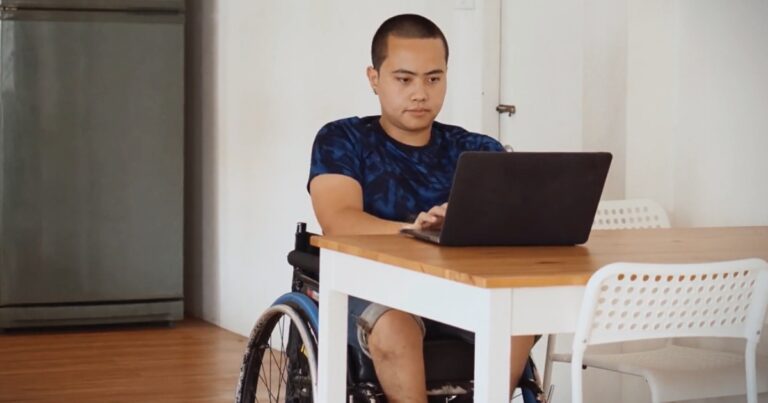The first step in appealing a long-term disability denial is to understand why the claim was rejected. Insurers typically provide a denial letter that explains their decision.
This letter is a crucial document, as it details the reasons for denial, such as lack of medical evidence or non-compliance with policy terms. Understanding these reasons is essential to address them effectively in the appeal.
Gathering Essential Documents
Once the reasons for denial are clear, the next step involves gathering all necessary documents. This includes medical records, doctors’ statements, and any other evidence that supports the disability claim.
It’s important to obtain comprehensive medical records that highlight the severity and impact of the disability on the individual’s ability to work.
Consulting Legal and Medical Experts

Consulting with legal and medical professionals can significantly strengthen the appeal. A lawyer specializing in disability claims can provide valuable insight into the legal aspects and help in preparing a robust appeal.
Similarly, medical experts can offer their opinions on the disability and its implications, providing crucial support to the claim.
Preparing the Appeal Letter
The appeal letter is a key component of the process. This letter should be detailed and concise, addressing each reason for denial specifically.
It should include an explanation of the disability, how it affects the individual’s ability to work, and counterarguments to the insurer’s reasons for denial. Including supporting documents, such as medical evidence and expert opinions, is vital.
In writing the appeal, start by stating the purpose and referencing your claim number. Address each denial reason with corresponding evidence and a narrative of how the disability impacts daily life. Conclude with a summary and a clear request for reconsideration or a meeting. Visit this website for guidance on crafting an effective appeal letter.
Submitting the Appeal
After preparing the appeal letter and supporting documents, the next step is submission. It’s important to follow the insurer’s procedures for submitting an appeal.
This typically involves sending the appeal letter along with all supporting documents to the address provided by the insurance company. Keeping a record of all submitted materials and correspondence is crucial for future reference.
Follow-Up and Further Actions

After submitting, it’s essential to follow up with the insurance company to ensure they received all materials and are processing the appeal. If denied, further steps may be taken, such as a second appeal or legal action.
At this stage, consulting with a lawyer can guide the best course of action.
Negotiating with the Insurance Company
Negotiation is a vital part of the appeal process. After submitting, the insurance company may offer a settlement or request additional information. It is important to approach these negotiations with a clear understanding of your rights and the value of your claim.
A disability lawyer can be instrumental in this phase, ensuring that your interests are well-represented and that any settlement offer is fair and adequate.
Understanding Potential Outcomes
It’s essential to understand the possible outcomes of an appeal. The insurance company may fully approve the claim, offer partial approval, or uphold their denial.
In cases of partial approval or continued denial, it’s important to assess the reasons provided and decide whether to accept the decision or pursue further action.
Exploring Alternative Solutions

If the appeal is unsuccessful, other options may be available, such as applying for other types of disability benefits or assistance programs. It’s also possible to file a lawsuit against the insurance company, although this can be lengthy and costly.
Weighing the pros and cons of each alternative solution is crucial in deciding the best course of action.
Maintaining Good Record-Keeping Practices
Throughout the process, maintaining organized records is crucial. This includes keeping copies of all submitted documents, correspondence with the insurance company, and any legal or medical consultations.
Good record-keeping ensures that all information is readily available for reference or use in further appeals or legal actions.
Staying Informed and Adapting to Changes
Staying informed about changes in disability laws, insurance policies, and medical assessments can impact the process. Being adaptable and ready to respond to new information or changes in circumstances can be crucial for a successful appeal.
Seeking Support and Resources

Finally, it’s important to seek support throughout the process. This can come from family, friends, support groups, or professional counselors. Additionally, numerous resources are available, such as disability advocacy groups and online forums, which can provide guidance and support.
As we unravel the intricacies of navigating challenges in securing financial stability during unforeseen circumstances, it becomes evident that athletes, too, are vested in safeguarding their futures through unique insurance strategies, establishing a crucial link between the comprehensive insights shared in this article and the specialized guidance provided in another.
Preparing for a Hearing
If the appeal process leads to a hearing, it is crucial to be well-prepared. This might involve presenting your case in front of a judge or an appeal board. Preparation includes reviewing all submitted documents, rehearsing your testimony, and understanding the questions you may be asked.
Your lawyer can conduct mock hearings to help you get comfortable with the process. During the hearing, it’s important to communicate the impact of your disability on your life and work.
Understanding the Role of Medical Evidence
Medical evidence plays a pivotal role in the appeal process. It is important to ensure that all medical documentation is current, thorough and supports your claim of disability.
This may involve getting additional tests, treatments, or evaluations to strengthen your case. Regular communication with your healthcare providers is key to ensure they understand the nature of your appeal and can provide the necessary medical information.
Dealing with Delays and Setbacks

The appeal process can be lengthy and may encounter delays. It’s important to remain patient and persistent. Stay in regular contact with your insurance company and legal team to monitor the progress of your appeal.
If there are significant delays, inquire about the reasons and whether there is any additional information you can provide to expedite the process.
Financial Planning During the Appeal Process
Since the appeal process can be prolonged, financial planning becomes crucial. It may involve adjusting your budget, exploring interim financial support options, or considering other income sources.
Financial advisors or counselors can offer valuable advice on managing finances during this uncertain period.
End Note
Appealing a long-term disability denial is a multi-faceted process that requires thorough preparation, patience, and resilience. Understanding the appeal procedure, assembling strong evidence, and having a robust support system are key to navigating this challenging journey.
While the process can be demanding, it is often the best path to securing the necessary support and benefits for those dealing with long-term disabilities.
Related Posts:
- How to Factory Reset Google Nest Mini - A Step-By-Step Guide
- How to Train a Dog to Sit: A Step-by-Step Guide with…
- How to Serve Whisky Like Pro: Step-by-Step Guide
- How to Execute Strategic Planning in Business: A…
- How Famous Athletes Secure Their Futures with…
- What Medical Conditions Qualify for Long-Term…











